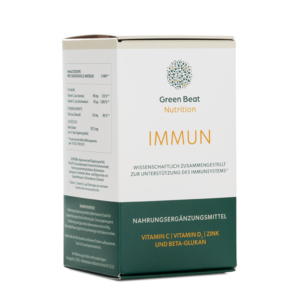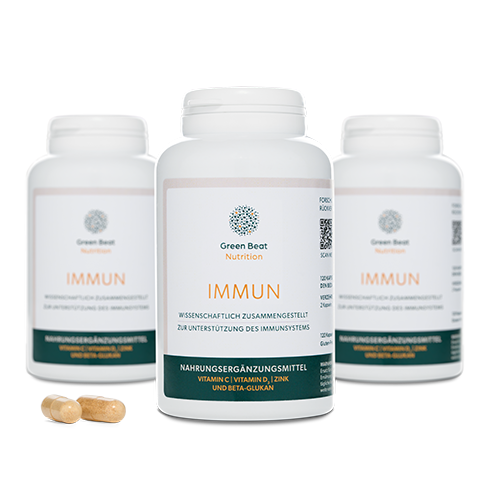The human immune system plays a fundamental role in the survival of each individual and has continually developed throughout evolution to provide protection against a wide array of pathogens. To respond appropriately to unwanted invaders such as bacteria, viruses, or other parasites, the immune defense is equipped with a variety of cell lines and proteins.

In essence, our immune defense can be divided into two types:
The uniqueness of the innate immune system lies in its consistent response to a pathogen, regardless of how many times one has encountered it before. Phagocytes are the primary cells of the innate immune system. Their job is to recognize foreign pathogens and distinguish them from the body’s own structures. If this distinction malfunctions, the immune system may no longer differentiate between the body’s own tissues and infections, leading to autoimmune diseases.
Some of the well-known representatives of phagocytes include monocytes, macrophages, dendritic cells and granulocytes. As their name suggests, these cells consume and digest infections. They are supported by a series of proteins collectively known as the complement system.
However, the job of phagocytes, is not quite limited by those tasks. After digesting pathogens, their features, essentially leftovers, can be presented on the cell surface. Through this presentation of pathogen features on the cell surface, the innate immune system signals the cells of the acquired immune system, primarily the so-called T-lymphocytes (or T-cells), to get activated against these ‘enemies.’ These specialized ‘memory cells’ then remain in the body for an extended period, forming the immunological memory along with antibody-producing B-lymphocytes (B-cells). If an infectious pathogen enters the organism again, it is fought more rapidly and effectively than the first time. [1]

The immune system must be well-nourished with essential nutrients to efficiently perform its tasks. One of the most well-known and crucial representatives is vitamin D3, which is not technically a vitamin because the human body can synthesize it from cholesterol and UV light. Thus, vitamin D3 is categorized as a prohormone.
Vitamin D3 is essential for bone health and boosts the antimicrobial function of our phagocytes. It also helps maintain a balance between attack and tolerance. Additionally, Vitamin D3 influences the division and maturation of cells in the acquired immune system (T-cells and B-cells), positively impacting the number of regulatory T-cells (Tregs) with anti-inflammatory and self-tolerance-promoting properties. It can also influence the development of B-cells and antibody production. [2]

Another well-known representative is vitamin C, which not only helps strengthen the initial barriers against invaders and promotes wound healing but also contributes to the function of phagocytes, supporting them on their journey to the site of infection. The development of T- and B-cells can also be positively influenced by vitamin C. While some mechanisms are not fully understood, it appears that vitamin C can promote both their maturation and development, as well as antibody production. [3]
Maintaining a proper level of zinc is crucial for immune cells to recognize and eliminate infections. Zinc also helps facilitate communication between different parts of the immune system, supporting the growth and maintenance of related cell lines. Effective communication among immune cells is essential for responding appropriately to various influences, and zinc plays a fundamental role in this communication pathway through messenger molecules called cytokines. [4]
Vitamins D3, C, and zinc are familiar supporters of immune defense, but there are other lesser-known ‘immune boosters’ like beta-glucans, which are gaining increasing attention. Beta-glucans, found in fungi, bacteria, and algae, form long chains of linked glucose molecules, known as polysaccharides. Their chemical structure depends on the source, with variations between fungi and algae, though they share similar effects.

Our immune system identifies foreign structures using specific proteins on the surface of our cells. Beta-glucans are unique molecules; our immune system recognizes them as ‘foreign’ but without classifying them being harmful. When beta-glucans interact with cell ‘sensors,’ they trigger an alert, helping cells respond faster and more effectively to threats.[5] This property of beta-glucans can prevent upper respiratory infections, reduce illness symptoms, and decrease sick days. [6]

A healthy lifestyle and healthy food are the basic requirements for a well-working immune system. We are well aware that it is not always easy to be conscious of what we eat and to have a well-balanced diet. This is why IMMUN provides you with high-quality immunoactive ingredients that strengthen the body’s defenses and, therefore, they ensure better health.
Copyright © 2022 Green Beat Nutrition GmbH | All Rights Reserved.